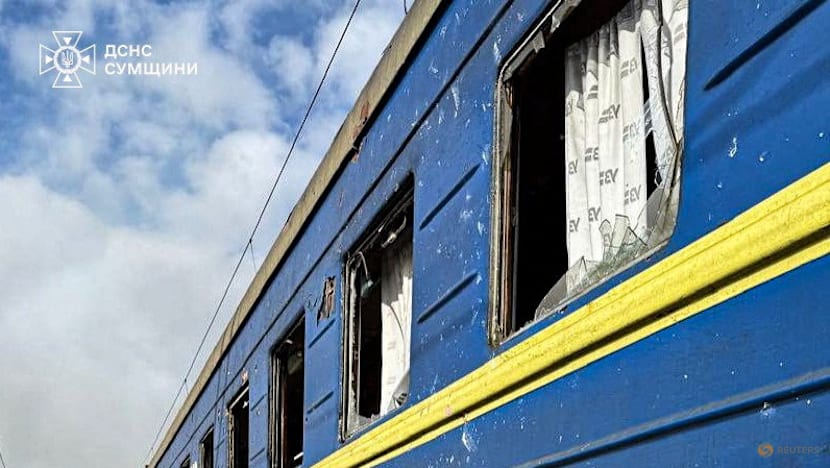Russian strike hits train station in Ukraine, killing one and injuring 30

KYIV: Two Russian drones struck trains at a station in Ukraine’s northern Sumy region on Saturday (Oct 4), killing one person and injuring about 30 others, Ukrainian officials said, with Foreign Minister Andrii Sybiha accusing Moscow of deliberately targeting passenger trains.
President Volodymyr Zelenskyy called the attack “brutal,” posting a video on Telegram showing a wrecked, burning passenger carriage and others with their windows blown out.
“This is one of the most brutal Russian tactics — the so-called ‘double tap’, when the second strike hits rescuers and people being evacuated,” Sybiha said in a statement on social media.
Sumy region governor Oleh Hryhorov said eight of the wounded had been taken to hospital.
“The Russians could not have been unaware that they were targeting civilians. This is terrorism, which the world has no right to ignore,” Zelenskyy said.
Russia has stepped up its airstrikes on Ukrainian railway infrastructure, hitting it almost daily over the past two months. Moscow has repeatedly denied targeting civilians, although tens of thousands have been killed since the full-scale invasion began in 2022.
DRONES HUNTED FOR LOCOMOTIVES
Ukraine’s state rail company CEO Oleksandr Pertsovskyi said in an interview that the drones specifically targeted locomotives, damaging attached carriages as well.
“In essence, they are hunting for locomotives,” Pertsovskyi told Reuters in a video call from a train en route to the strike site, adding that Russia was increasingly deploying this tactic.
He said the trains hit included a local commuter service and another bound for Kyiv.
Pertsovskyi said only civilian traffic passed through the Shostka station, about 50km from the Russian border, and suggested the attack was meant to make border regions uninhabitable.
“They are doing everything to make frontline and border areas unsafe — so that people are afraid to go there, afraid to board trains, afraid to gather at markets, and so that students are afraid to return home,” he said.















